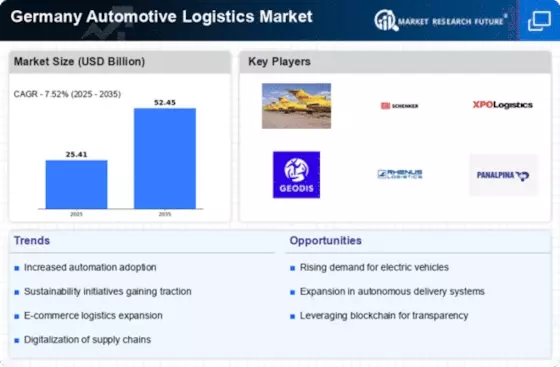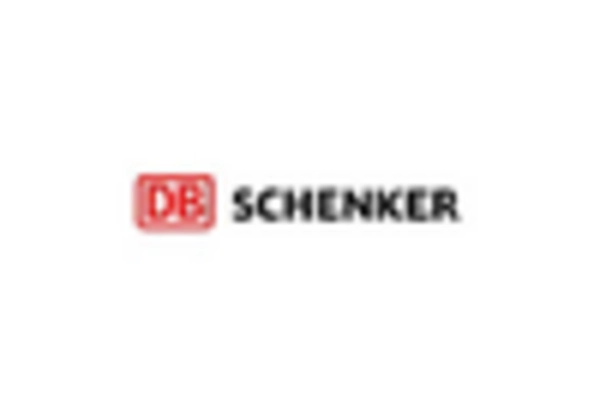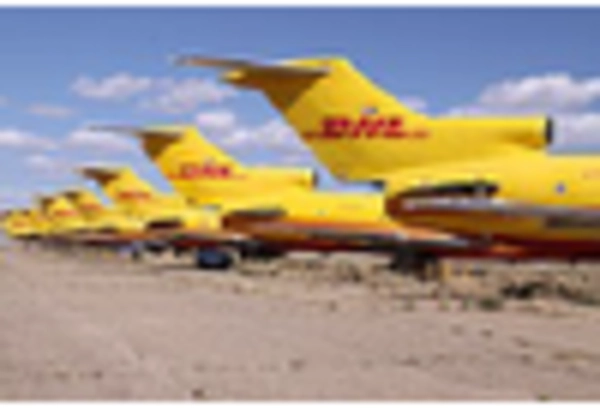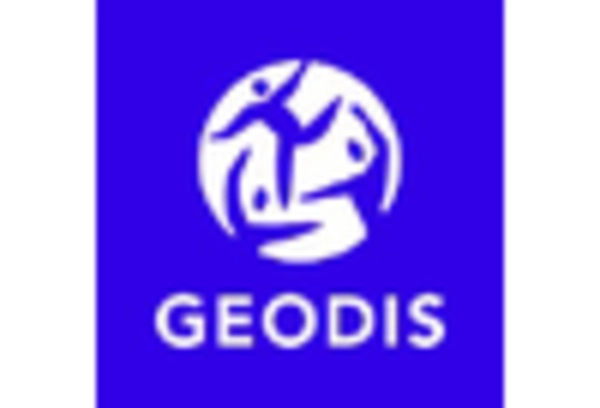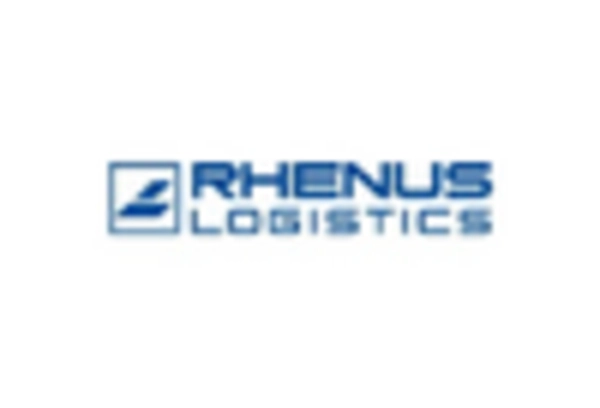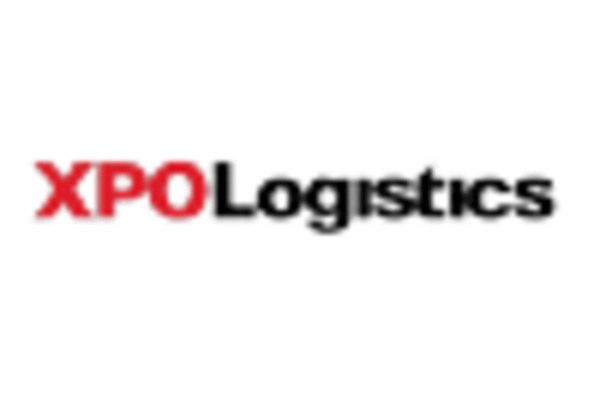Growing E-commerce Demand
The rise of e-commerce has transformed the Germany Automotive Logistics Market, creating new opportunities and challenges. With consumers increasingly opting for online vehicle purchases and parts ordering, logistics providers must adapt to meet this demand. Data indicates that e-commerce in the automotive sector is expected to grow by over 20% annually, necessitating enhanced logistics capabilities. This shift compels logistics companies to develop specialized services, such as last-mile delivery solutions and efficient inventory management systems. Consequently, the growing e-commerce demand is a significant driver of innovation and investment in the Germany Automotive Logistics Market.
Global Supply Chain Integration
The integration of The Automotive Logistics Industry. As automotive manufacturers expand their operations internationally, the need for efficient logistics solutions that can manage complex supply chains becomes paramount. This integration facilitates the movement of parts and finished vehicles across borders, enhancing operational flexibility. Data suggests that companies with robust global supply chain strategies can reduce lead times by up to 25%. Furthermore, the ability to source materials from diverse locations allows for cost optimization and risk mitigation, thereby reinforcing the importance of The Automotive Logistics Industry.
Sustainability and Green Logistics
Sustainability initiatives are becoming a cornerstone of the Germany Automotive Logistics Market. As environmental concerns rise, logistics providers are increasingly adopting green practices to reduce their carbon footprint. This includes the use of electric vehicles for transportation, optimizing supply chain routes to minimize emissions, and implementing eco-friendly packaging solutions. According to recent studies, companies that prioritize sustainability can enhance their brand reputation and customer loyalty, which is crucial in a competitive market. The push for greener logistics not only aligns with consumer preferences but also complies with regulatory pressures, making it a vital driver for the Germany Automotive Logistics Market.
Regulatory Framework and Compliance
The regulatory landscape in Germany plays a pivotal role in shaping the Automotive Logistics Market. Stringent regulations regarding emissions, safety standards, and transportation protocols necessitate that logistics providers adapt their operations accordingly. The European Union's Green Deal, which aims to make Europe climate-neutral by 2050, influences logistics strategies significantly. Compliance with these regulations often requires investment in cleaner technologies and more efficient logistics practices. As a result, logistics companies that proactively align with these regulations are likely to gain a competitive edge, thereby driving growth within the Germany Automotive Logistics Market.
Technological Advancements in Logistics
The Germany Automotive Logistics Market is experiencing a surge in technological advancements that enhance operational efficiency. Innovations such as automated warehousing, real-time tracking systems, and advanced data analytics are becoming increasingly prevalent. For instance, the integration of Internet of Things (IoT) devices allows for seamless communication between vehicles and logistics providers, optimizing routes and reducing delivery times. According to recent data, the adoption of these technologies is projected to increase logistics efficiency by up to 30% in the coming years. This trend not only streamlines operations but also reduces costs, making it a critical driver for the growth of the Germany Automotive Logistics Market.


